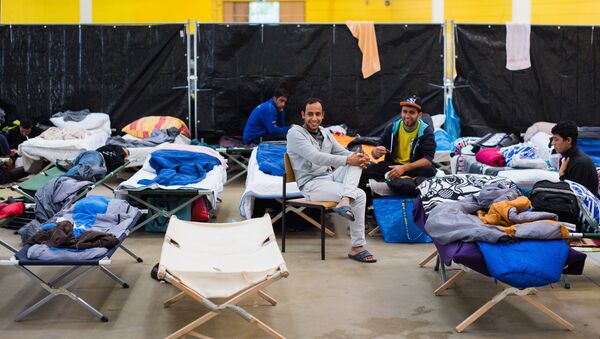German municipalities demand faster integration of refugees into the labor market, Deutsche Welle reported.
By mid-2017, almost 600,000 refugees eligible to work received unemployment assistance from the German government instead of having a proper job, managing director of the German Association of Towns and Municipalities, Gerd Landsberg, was quoted by the media source as saying.
"There was an increase of over 250,000 people compared to 2016," he stated, adding that less than 200,000 refugees were employed by the middle of 2017.
"These figures show that we still have to make tremendous efforts to successfully integrate refugees into the labor market," Landsberg continued.
By contrast, many newcomers in Germany are required to obtain a certain language proficiency to be able to find a proper job.
"Germany must get rid of its rigid patterns and respond to new challenges with new concepts," Landsberg said.
Germany has been struggling to manage a massive refugee crisis, which escalated in 2015 with hundreds of thousands of migrants seeking asylum in EU member states.
German Chancellor Angela Merkel has been severely criticized for her "open-door policy," as the heavy inflow of refugees has become a heavy burden for the German economy.
In 2017, the number of asylum applications has significantly decreased compared to previous years.
According to the Ministry of Interior, around 187,000 people applied for asylum in Germany in the first 10 months of 2017. In the same period last year, there were about 694,000 such applications.



